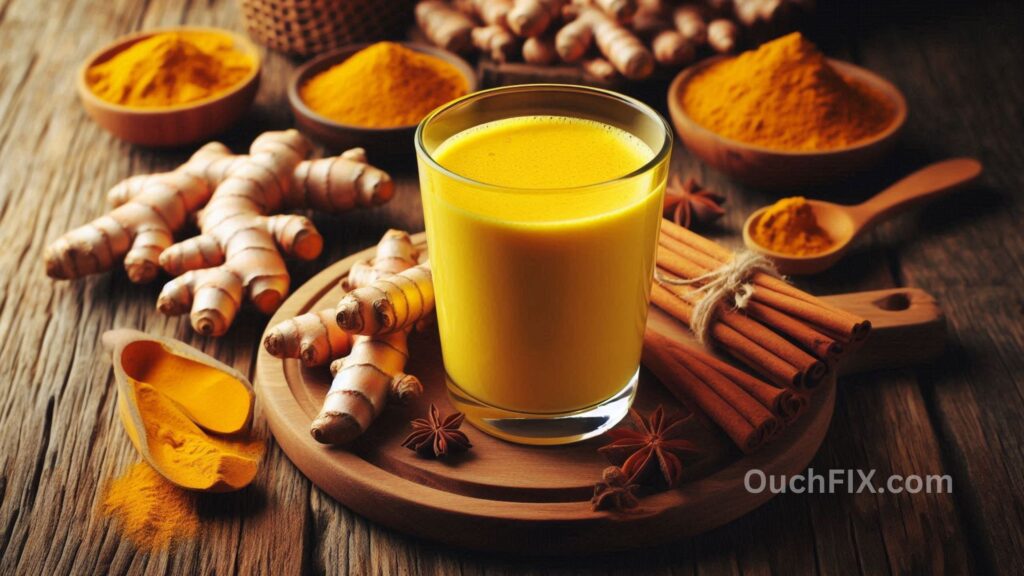Arthritis is one of the most common causes of chronic pain worldwide. It affects millions of people and can make everyday tasks—like walking, climbing stairs, or even opening a jar—feel challenging. While there are different types of arthritis, the two most common are:
- Osteoarthritis (OA): Caused by the breakdown of cartilage, leading to bone-on-bone friction.
- Rheumatoid Arthritis (RA): An autoimmune disorder where the immune system mistakenly attacks healthy joints.
Both conditions can lead to pain, stiffness, and swelling. Doctors often recommend medications, but many people look for natural ways to ease arthritis pain at home. The good news? There are several lifestyle changes and remedies that can make a big difference in how you feel.
In this guide, we’ll cover 9 natural strategies—from diet to stress management—to help you manage arthritis pain and improve your quality of life.
1. Manage Your Weight
YCarrying excess weight puts unnecessary stress on your joints—especially your knees, hips, and feet. Over time, this can worsen arthritis pain and speed up joint damage.

👉 Why it matters:
- Every extra pound of body weight adds about 4 pounds of pressure on your knees.
- Losing just 5–10% of your body weight can significantly reduce joint pain and improve mobility.
The American College of Rheumatology suggests that people with osteoarthritis should aim for gradual, sustainable weight loss.
Tips for healthy weight management:
- Consult your doctor for a safe target weight and plan.
- Focus on portion control.
- Add more fruits, vegetables, and whole grains.
- Replace sugary drinks with water or herbal teas.

Also Read: What are Safe Natural Remedies for Arthritis Pain?
2. Stay Active
It might sound counterintuitive, but movement is one of the best ways to ease arthritis pain. Regular physical activity keeps joints flexible, strengthens supporting muscles, and helps with weight control.

👉 Benefits of exercise for arthritis:
- Improves joint mobility
- Strengthens muscles around affected joints
- Enhances balance and reduces fall risk
- Boosts energy and mood
The Centers for Disease Control and Prevention (CDC) recommends at least 150 minutes of moderate activity per week.
Low-impact exercises for arthritis:
- Walking or light jogging
- Swimming or water aerobics
- Cycling
- Yoga or tai chi
💡 Pro tip: If you’re unsure where to begin, work with a physical therapist or certified trainer who has experience with arthritis-friendly workouts. where to start, a healthcare professional or trainer can help create an exercise plan that works for you.
3. Try Heat and Cold Therapy
Simple hot and cold treatments can make a noticeable difference in arthritis pain.

- Heat therapy: A warm shower, heating pad, or warm towel can loosen stiff joints and relax tight muscles.
- Cold therapy: An ice pack wrapped in a towel reduces swelling and numbs sharp pain.
Some people also find relief from capsaicin cream (derived from chili peppers), which creates a warming sensation on sore joints.
💡 Alternate between hot and cold therapies depending on whether stiffness or swelling is your biggest issue.
4. Give Acupuncture a Shot
Acupuncture, an ancient Chinese practice, involves inserting thin needles into specific points on the body. Research suggests it may help reduce pain and improve joint function in people with arthritis.

👉 Why consider acupuncture?
- Low risk when performed by a licensed practitioner
- May improve circulation and reduce inflammation
- Can complement other pain management strategies
If you’re curious, consult your doctor first, then find a certified acupuncturist with experience in treating arthritis.
5. Use Meditation to Cope with Pain
Arthritis doesn’t just affect the body—it also impacts mental health. Stress, anxiety, and depression can make pain feel worse and even increase inflammation in the body.

Mind-body practices such as mindfulness meditation, yoga, guided imagery, or deep breathing can help break this cycle.
👉 How meditation helps:
- Reduces stress hormones
- Improves sleep quality
- Increases pain tolerance
- Promotes relaxation and emotional balance
Even 10–15 minutes of daily meditation can make a difference. Free apps like Headspace or Calm can help beginners get started.

Also Read: What Natural Methods Reduce Recovery Time for Sports Injuries?
6. Follow an Anti-Inflammatory Diet
What you eat has a direct impact on inflammation levels in your body. A Mediterranean-style or plant-based diet is often recommended for arthritis sufferers.
✅ Foods that fight inflammation:
- Fatty fish (salmon, sardines, mackerel)
- Olive oil
- Leafy greens like spinach and kale
- Berries, cherries, and grapes
- Garlic and ginger
- Nuts (walnuts, almonds)
❌ Foods to limit:
- Processed meats
- Sugary snacks and sodas
- Refined carbs (white bread, pastries)
- Excess salt and fried foods
Healthline highlights that an anti-inflammatory diet can help reduce arthritis symptoms while also improving heart health and overall well-being.ore making big changes to your diet to avoid nutritional deficiencies.
7. Add Some Turmeric
Turmeric is more than just a spice—it’s a powerful natural anti-inflammatory. Its active compound, curcumin, has been studied for its potential to reduce joint pain and stiffness.

👉 How to use turmeric:
- Add it to curries, rice, or soups
- Blend into smoothies
- Take it in supplement form (after consulting your doctor)
For better absorption, combine turmeric with black pepper, which enhances curcumin’s bioavailability.
8. Try Massage
Massage therapy isn’t just relaxing—it may also reduce arthritis pain by improving blood flow and easing muscle tension.
A study published in the Journal of General Internal Medicine found that regular Swedish massage improved pain and mobility in people with osteoarthritis.
Types of massage that may help:
- Swedish massage (gentle, relaxing)
- Deep tissue massage (for muscle tension)
- Self-massage with a foam roller or massage ball
💡 Before starting, check with your doctor to ensure massage therapy is safe for your specific condition.
9. Consider Herbal Supplements
Some herbs have anti-inflammatory properties and may provide relief for arthritis pain. However, since supplements aren’t regulated as strictly as medications, it’s important to proceed with caution.

👉 Herbs that may help arthritis:
- Boswellia (Indian frankincense): May reduce pain and improve mobility
- Bromelain: An enzyme from pineapples with anti-inflammatory effects
- Devil’s claw: Traditionally used for joint pain
- Ginkgo biloba: May improve circulation
- Stinging nettle: Sometimes used in joint health remedies
⚠️ Always buy supplements from trusted brands and consult your doctor before use—especially if you’re on other medications.d by the FDA, be sure to buy from a trusted source and talk to your doctor before trying anything new. Some supplements can interact with medications.

Also Read: Which Natural Supplements Help Ease Muscle Soreness?
Final Thoughts
Managing arthritis pain naturally is possible with the right lifestyle adjustments. From maintaining a healthy weight to trying complementary therapies like acupuncture and massage, these strategies can help you regain control over your health.
Remember: Everyone’s arthritis journey is different. What works for one person may not work for another. The key is to experiment, stay consistent, and work closely with your healthcare provider.
FAQs About Natural Arthritis Pain Relief
Q1. Can arthritis pain really improve without medication?
Yes, lifestyle changes like weight loss, exercise, and an anti-inflammatory diet can significantly reduce arthritis pain.
Q2. What is the fastest natural way to relieve arthritis pain?
Cold therapy (ice packs) works quickly for swelling, while heat therapy helps loosen stiff joints.
Q3. Is turmeric safe for long-term use?
Generally, yes, but high doses may interact with medications like blood thinners. Always consult your doctor.
Q4. Which exercise is best for arthritis?
Low-impact activities like swimming, cycling, and tai chi are considered safe and effective.
Q5. Can stress make arthritis worse?
Absolutely. Stress increases inflammation in the body, which can worsen arthritis symptoms.




